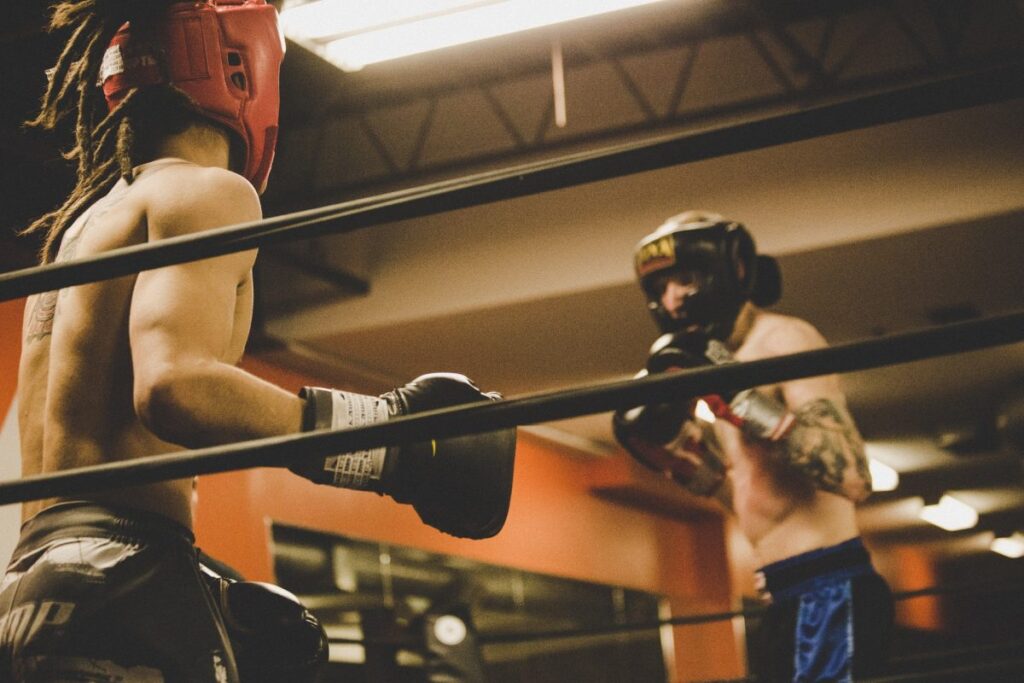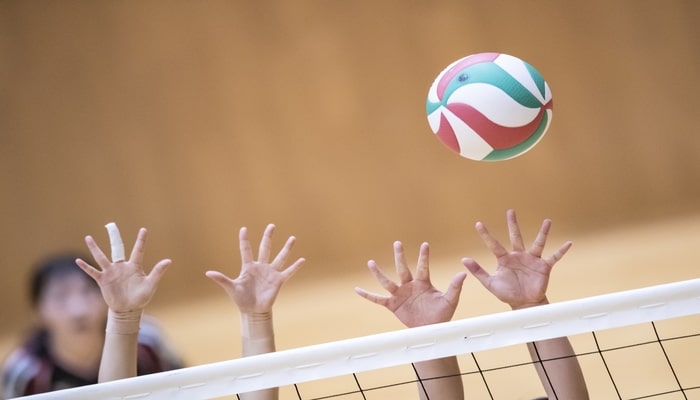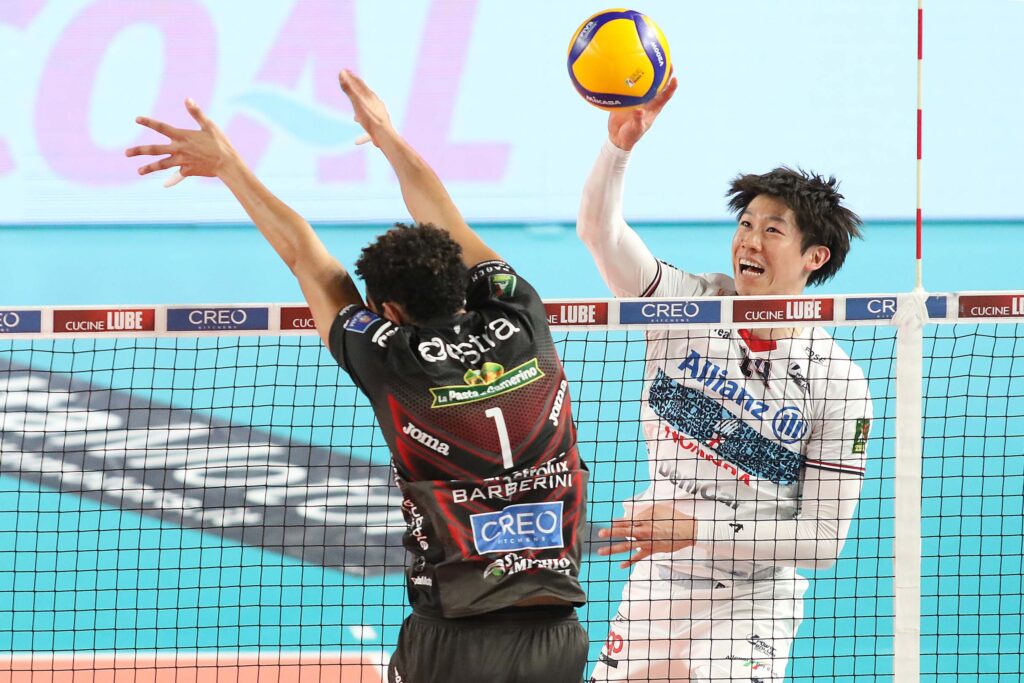
A Class C license in boxing is an important step for many boxers as they begin their career.
Obtaining this license is an expression of your intention to seriously engage in competitive boxing, and can be said to be the first step toward paving the way to becoming a professional.
However, obtaining a Class C license is not just a matter of honing your form and technique; it is also a test in which your mental strength, physical strength, and strategy are evaluated comprehensively.
The level of difficulty that many challengers face in this step is extraordinary, but it is also a hurdle that can be overcome with proper preparation and guidance.
This time, as the first step towards obtaining a Class C license, we will explain in detail the basic knowledge of boxing, the content of the exam, and the necessary conditions.
目次
- 1 What is a boxing class C license?
- 2 The first step to obtaining a Class C license: Boxing basics and requirements
- 3 What is the level of difficulty faced by boxing class C license challengers?
- 4 Shortcut to passing: A training method to reduce the difficulty of the C-class license
- 4.1 1. Personalized training based on analysis
- 4.2 2. Intensify technical practice
- 4.3 3. Physical fitness and conditioning
- 4.4 4. Sparring and practice
- 4.5 5. Knowledge acquisition and psychological preparation
- 4.6 6. Periodic progress evaluation
- 4.7 7. Use of training diary
- 4.8 8. Build your networking and support system
- 5 C-class license exam content and difficulty analysis: What boxing beginners need to know
- 6 Boxing C-Class License Exam: Tips for Conquering and Attitude to Challenge the Difficulty Level
- 7 Challenges faced by boxing beginners: A thorough explanation of the difficulty level of the C-class license
What is a boxing class C license?
The Class C boxing license is an entry-level qualification to start your career as a professional boxer.
Obtaining this license qualifies an athlete to compete in official professional boxing matches.
A Class C license requires that you meet basic standards in a wide range of areas, including not only boxing technique, but also physical fitness, rule knowledge, and sportsmanship.
Acquisition process
The process of obtaining a Class C license typically includes a written exam and a practical exam.
The written exam tests theoretical aspects such as boxing rules, knowledge of match management, and the history of boxing as a sport.
The practical exam evaluates actual boxing skills such as punching technique, defense, and physical strength.
Athletes’ health and fitness levels are also checked to ensure they have the physical strength and endurance required to compete.
Difficulty and challenge
The difficulty level of a Class C license varies greatly depending on boxing experience and individual skill level. If you are an athlete who has established a certain foundation in boxing, you may be able to obtain your license relatively smoothly through proper preparation and training.
However, for beginners and inexperienced athletes, it can be a challenge to reach the required standard in all exam items.
meaning and purpose
The significance of obtaining a Class C license is not just for starting your career as a professional boxer.
Through this process, athletes can deepen their skills and knowledge and deepen their understanding of boxing.
Obtaining a license is also an important step in ensuring the safety of athletes and fair competition.
A Class C boxing license is the first step in a long journey as a professional.
Athletes aiming for this license must not only master the techniques, but also have a passion for boxing and a strong will to endure rigorous training.

The first step to obtaining a Class C license: Boxing basics and requirements
Obtaining a Class C boxing license is an important step in starting your career as a professional boxer.
In order to obtain this license, you must have a solid foundation in boxing and meet several requirements.
Below, we will explain in detail the basic knowledge and requirements for boxing as a first step to obtaining a C-class license.
Basic knowledge of boxing
- Learning techniques: It is essential to learn the basic boxing poses, punching techniques (jabs, straights, hooks, uppercuts, etc.), and defensive techniques (blocks, slips, purling, etc.).
- Fitness and physical strength: Boxing is a sport that requires a high degree of physical strength. You will be required to improve your overall fitness level, including endurance, strength, speed, and flexibility.
- Understanding rules and regulations: Knowledge of the official rules of boxing, the flow of a match, and a respectful sportsmanship attitude is also important in order to properly conduct a match.
Requirements
- Verification of physique and health status: A medical examination by a doctor is mandatory before applying for a Class C license. Players must prove that they are fit enough to compete.
- Training and Experience: A period of training experience may be required. Competing experience at the amateur level and sparring experience in the gym will also be evaluated.
- Passing the written and practical exams: To obtain a Class C license, you are required to pass a written exam that tests your theoretical knowledge of boxing and a practical exam that evaluates your actual boxing skills.
Training points
- From basics to applications: It is important to firmly master basic techniques before moving on to applied techniques and strategies. Increase the difficulty of your training step by step.
- Utilize Feedback: You must be willing to accept feedback from your trainers and sparring partners and be willing to continually improve your technique.
- Regular health care: Maintain your body in its best condition by having regular health checkups, proper nutrition, and getting enough rest.
Obtaining a Class C boxing license is a boxer’s first major challenge. However, with proper training and preparation, and the necessary basic knowledge and requirements, you can overcome this challenge.
The knowledge and skills learned in the process of obtaining a Class C license will be valuable assets in your future career as a professional boxer.
Obtaining your license shows that you are serious about boxing and that you are ready to reach new heights.
As you train and take your exams, you may encounter setbacks and difficulties.
However, by overcoming them, you will also develop mental strength. The process of obtaining a Class C license is not just a matter of acquiring skills and knowledge; it is an important stage for growth and development as a boxer.
When you finally get your Class C license, it means the beginning of a new journey.
The path to becoming a professional boxer is tough, but by learning the basics and accumulating experience, you will be able to make great strides toward your dreams.
May the path to success be opened to all boxers aiming to obtain a Class C license.

What is the level of difficulty faced by boxing class C license challengers?
Challengers seeking to obtain a Boxing Class C license face a wide range of difficulties.
This license is the first step to starting a career as a professional boxer, and requires clearing various technical, knowledge, and physical fitness standards.
Here, we will explain the main difficulty levels that challengers face when obtaining a C-class license.
1. Technical requirements
- Acquisition of various techniques: In addition to basic boxing techniques, advanced attacking and defensive techniques are also required. This includes punching techniques such as jabs, straights, hooks, and uppercuts, as well as defensive techniques such as evasive movements, blocking, and purling.
- Pressure of the practical exam: During the practical exam, you will have to actually demonstrate these skills in front of the examiner, and you will be required to perform under stress.
2. Physical fitness and conditioning
- High physical strength requirements: You must have the physical strength and stamina to endure matches as a professional boxer. Your endurance during long hours of training and sparring, as well as your staying power during matches, will be tested.
- Physical test: In the physical fitness test, athletic ability, muscle strength, endurance, etc. are strictly checked, and you must meet high standards.
3. Understanding knowledge
- Rules and Regulations: A deep understanding of boxing match rules, technical rules, and sportsmanship is required. This knowledge will be tested in the written exam.
- Strategy and Tactics: In addition to theoretical knowledge, an understanding of match tactics and strategies is also important. This will be reflected in your judgment in practical exams and sparring.
4. Mental strength
- Mental burden of the challenge: The road to obtaining a Class C license is a great mental challenge. You will need to overcome many mental barriers such as fear of failure, staying motivated, and exam pressure.
Challengers aiming to obtain a Class C boxing license need continuous training, knowledge acquisition, physical strength, and mental preparation to cope with these levels of difficulty.
The key to success is continued effort in meeting these challenges and strong self-belief.

Shortcut to passing: A training method to reduce the difficulty of the C-class license
The exam for the C-class boxing license offers many challenges in terms of technique, physical fitness and knowledge, but these difficulties can be reduced by adopting efficient training methods. .
Here, we will propose a shortcut to training for passing the C-class license.
1. Personalized training based on analysis
- Self-analysis: Accurately understand the current state of your skills, physical strength, and knowledge, and clarify your weaknesses. It is important to develop an individualized training plan based on this analysis.
- Customized Training: We carry out customized training programs to overcome your weaknesses and further develop your strengths. In particular, on the technical side, we aim to improve skills step by step from basic to advanced.
2. Intensify technical practice
- Punching Drills: Spend more time practicing basic punching techniques such as jabs, straights, hooks, and uppercuts. This increases accuracy and power.
- Defense Skills: Improve your defensive skills by strengthening practice of defensive techniques such as evasive movements, blocking, and purling.
3. Physical fitness and conditioning
- Cardio and interval training: Incorporate cardio and interval training to improve stamina and explosive power. This will improve your endurance and speed in matches.
- Strength training: Improve the power and durability of your punches by training your whole body’s muscles in a well-balanced manner.
4. Sparring and practice
- Practical sparring: We frequently engage in sparring in a manner similar to a real match to improve your ability to apply it in real combat. By sparring with opponents of different styles, you will be able to use a variety of tactics.
- Utilize feedback: After sparring, receive feedback from trainers and partners, identify specific areas for improvement, and strive to make corrections.
5. Knowledge acquisition and psychological preparation
- Learning Rules and Regulations: Learn about the rules, regulations, and sportsmanship of boxing and prepare for the written exam.
- Mental Training: Incorporate mental training such as goal setting, visualization, and relaxation techniques to develop mental strength.
By actively adopting these training methods, you can lower the difficulty level of the C-class license exam and get closer to passing it.
The key is to continue training with consistency and have the flexibility to regularly assess your own progress and adjust your training plan as needed.
6. Periodic progress evaluation
- Monitor progress: Regularly undergo self-assessments and evaluations by your trainer to confirm the effectiveness of your training. It is important to adjust your training content according to your progress and focus on the skills necessary to achieve your goals.
- Conduct mock exams: By practicing in a manner that mimics the format of the written and practical exams, you will be able to get used to the pressure of exam day and approach the exam with confidence.
7. Use of training diary
- Recording in a diary: By recording your daily training content, meals, sleep, mental and physical condition, etc., you can objectively understand your own condition and find areas for improvement.
- Reflect and review goals: Look back at your training diary, evaluate what went well, what challenges remain, and set goals for next steps.
8. Build your networking and support system
- Interaction with peers: Interacting with fellow training members who have the same goals as you will help you stay motivated. It is also possible to share techniques and experiences and learn from each other.
- Establish a support system: Support from family, friends, and trainers is essential to help you overcome the emotional challenges you face during the challenge. It’s important to build a reliable support system and get regular feedback and encouragement.
Obtaining a Class C boxing license is a goal that can be achieved with proper preparation and effort.
By adopting a comprehensive training approach and improving yourself in terms of technique, physical strength, knowledge, and mental strength, you can reduce the difficulty of the C-level license and pave the way to passing it.

C-class license exam content and difficulty analysis: What boxing beginners need to know
A Class C boxing license is an important step in starting your career as a professional boxer.
In order to obtain this license, it is necessary to pass a certain exam, and the content and difficulty level of the exam is especially important information for boxing beginners.
Here, we will analyze the content and difficulty of the C-class license exam and explain the points that boxing beginners should know.
contents of the test
The C-class license exam consists of two main parts: a written exam and a practical exam.
1. Written exam
- Rules and Regulations: Knowledge of the rules of boxing, how a match is conducted, and the rules that a fighter must follow is tested.
- Basic Theory: Basic theoretical knowledge of boxing technique, strategy, and history will also be tested.
2. Practical exam
- Basic techniques: Basic striking techniques such as jabs, straights, hooks, and uppercuts, as well as defensive techniques will be evaluated.
- Sparring: Your ability to apply techniques, strategic thinking, and adaptability will be checked through practical sparring.
- Physical Fitness Tests: Tests may also be included to measure the level of physical fitness required to be an athlete.
Difficulty analysis
The difficulty of the Class C license exam varies greatly depending on your level of boxing experience, but there are multiple challenges for beginners.
- Extensive knowledge required: The written exam requires extensive knowledge of boxing. Beginners need to learn the rules and theory from scratch.
- Accuracy and application of techniques: The practical exam tests not only the accuracy of basic techniques, but also how to apply them in actual combat. This requires plenty of practice and practical experience.
- Physical strength and endurance: Physical fitness tests and sparring require high physical strength and endurance. For beginners, training to hone these skills is essential.
Measures and preparation
- Learn from the basics: Thoroughly learn and deepen your understanding of the basic theory, techniques, and rules of boxing.
- Practice and sparring: Through technical practice and sparring, you will improve your ability to apply it in actual combat.
- Strengthen your physical strength: Do regular physical training and strive to reach the level of physical fitness required for the exam.
- Mock exam: If possible, take a mock exam of the written exam to familiarize yourself with the exam format and check your knowledge. Also, for the practical exam, it is effective to receive guidance from a trainer or an experienced boxer and hone your skills based on feedback.
- Mental strength: Mental training is also important to withstand the pressure of exams. Try using visualizations to visualize success and breathing techniques to relieve tension.
summary
The exam for obtaining a Class C license includes many challenges for boxing beginners, but with proper preparation and training, these difficulties can be overcome.
The key to success is to learn thoroughly from the basics and hone your physical strength and technique.
Additionally, the experience and knowledge gained through the process of taking the exam will be valuable assets in the future as a professional boxer.
The Class C license exam is not just a passing point, but a great opportunity to deepen your understanding of boxing and improve your skills.

Boxing C-Class License Exam: Tips for Conquering and Attitude to Challenge the Difficulty Level
The C-class boxing license exam is an important step towards a career as a professional boxer.
Proper preparation and the right attitude are essential to cracking this exam and tackling its difficulty level.
Here, we will explain the tips for conquering the C-class license exam and the mental attitude you should take when taking the exam.
Strategy tips
1. Complete preparation
- Theory learning: Thoroughly learn the rules, history, and technical theory of boxing. The exam will ask a wide range of questions about this knowledge, so don’t neglect studying theory.
- Practical practice: Polish a wide range of skills, from basic techniques to applied techniques. In particular, it is important to practice in a manner similar to actual combat, paying attention to the balance between defense and attack.
2. Improve your physical strength and stamina
- To build the strength and stamina for long competitions, combine regular aerobic exercise such as running, swimming and cycling with a good balance of strength training.
3. Be active in sparring
- Spar with opponents of different styles to gain practical experience. This allows you to develop instantaneous judgment and application skills.
4. Mental training
- Mental training to manage tension and pressure is also important. Use relaxation techniques and positive self-suggestion to calm yourself down before the exam.
Attitude to take on challenges
1. Maintaining sustainable motivation
- Stay motivated by setting clear goals and always being aware of why you want to obtain a C-class license.
2. Don’t be afraid of failure
- We view failure as a step towards success and maintain an attitude of learning from challenges. It is important to accept even failures in exams as valuable experiences for growth.
3. Use feedback
- Actively seek feedback from trainers and sparring partners, objectively evaluate your own techniques and strategies, and strive to improve.
4. Be persistent
- Obtaining a Class C license is a long-term goal that cannot be achieved overnight. It is important to be patient and work hard step by step. Overcoming the difficulties and obstacles you face in the process of taking on challenges will lead to your personal growth.
Broaden your vision of your ultimate goal
- Enjoy the process of achieving your goal: The key to sustaining your motivation is to enjoy the learning and experience in the process, rather than just aiming to obtain a Class C license.
- Looking ahead to a professional career: Obtaining your Class C license is the beginning of a long journey as a professional boxer. It is important to train while thinking about your career plan and what kind of boxer you want to be in the future.
Conquering the Class C boxing license exam and taking on the challenge of challenging the level of difficulty is not just about improving your technique and physical strength, but also involves spiritual growth.
Treating exam preparation as an opportunity to grow not only as a boxer, but also as a person, and approaching it positively will pave the way to success.
The challenge is not easy, but with proper preparation and the right attitude, obtaining a Class C license is not a far-off dream.

Challenges faced by boxing beginners: A thorough explanation of the difficulty level of the C-class license
Obtaining a Class C boxing license is an important gateway to starting your career as a professional boxer.
Obtaining this license qualifies the player to compete in official professional matches.
However, the path to getting there is not an easy one. The exam is highly difficult and requires strict standards in terms of technique, physical strength, and knowledge.
The shortcut to success lies in proper preparation and the right attitude.
Strategies include acquiring knowledge through theoretical learning, improving technique through practical practice, building physical strength and stamina, accumulating practical experience through sparring, and strengthening your mind through mental training.
In particular, practical sparring experience is extremely important in improving the ability to apply techniques in exams.
In addition, in order to take on challenges, it is necessary to maintain sustainable motivation, to learn from challenges without fear of failure, to continually improve techniques using feedback, and to persevere.
Obtaining a C-class license not only improves skills and knowledge, but also encourages the challenger’s spiritual growth.
What I learned and experienced during this process will be invaluable in my future career as a professional boxer.
By preparing for the exam, you will be able to challenge your limits and surpass yourself, taking you one step closer to your dreams.
The road to obtaining your C-license is never easy, but with the right preparation and a positive attitude, your chances of success are great.





